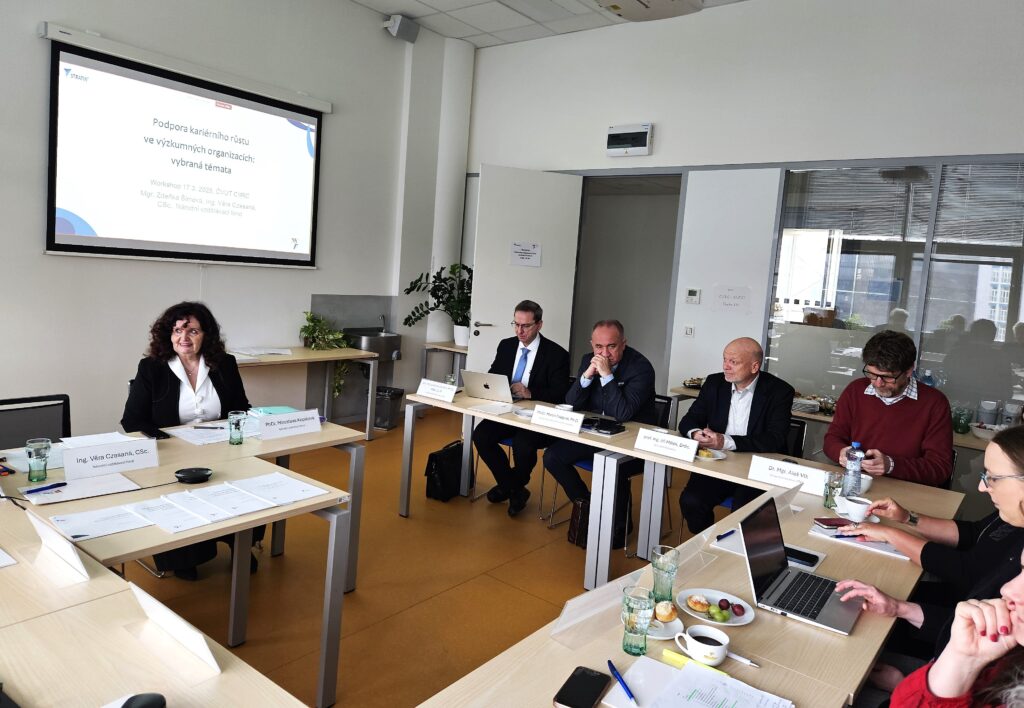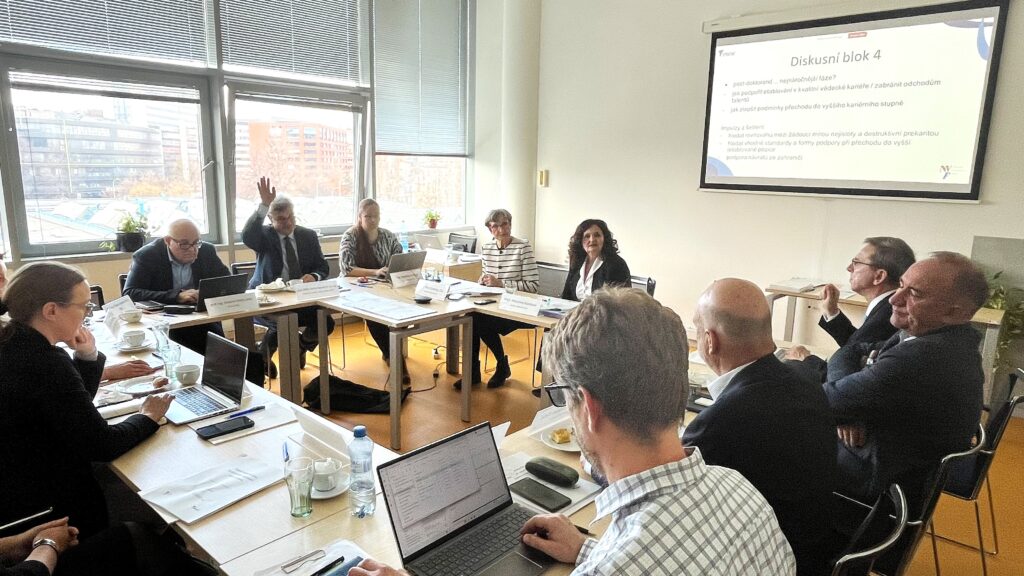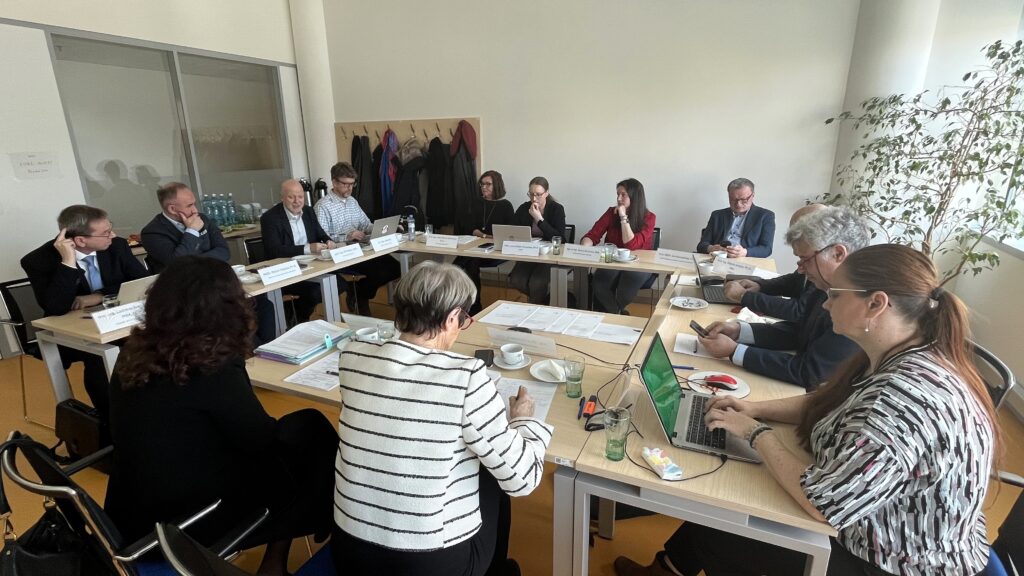The workshop served as a forum for discussing the main results of the qualitative survey conducted by the National Training Fund, which are presented in the study “Supporting career growth in research organisations: selected topics” (December 2024).
Among the participants were not only the Director General for Higher Education, Science and Research section of the Ministry of Education, Prof. R. Wildová, CSc., but also other top representatives of the Ministry of Education, as well as leading representatives of research organizations, universities and prominent scientific personalities.
Several topics were discussed that emerged from this study as key to improving the conditions for scientific careers, in particular issues related to the remuneration of scientists and project funding of science, the evaluation of science, bureaucratic burdens, career paths of scientists, including the specific situation of postdocs and early career scientists.
The discussion produced a number of concrete recommendations aimed at improving the quality of science, transparency and the attractiveness of academic careers in general. Among the specific proposals that were most strongly voiced were contractually guaranteed fixed and transparent salaries for senior scientific positions, efforts to further reduce the administrative burden, transparent selection procedures for senior positions or the introduction of a position of a professor (as distinct from a professorship as an academic title awarded to a person). Emphasis was placed on the creation of a clear and internationally understandable career trajectory, which can be implemented, for example, in the form of graduate schools, with quality mentoring and separation of research activities from the teaching load.
The need for a fundamental reform of doctoral studies, including a reduction of programmes, an emphasis on quality and the possibility of introducing doctoral programmes outside faculties, resonated among participants. A proposal was made to create a national postdoctoral fellowship system, which would, however, have to prevent inbreeding in the first place. Formative feedback in national research evaluation (17+ methodology) and the overall simplification and improvement of evaluation processes were supported. Last but not least, the need to support the correct termination of positions of leadership in research institutes and the expansion of the offer of study programmes in English was emphasised.
The well-founded discussion of experts at the workshop was appreciated by the representatives of the Ministry of Education and Science as a stimulus for the preparation of theses and concepts of the new law on higher education, which is currently underway.





